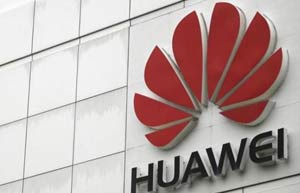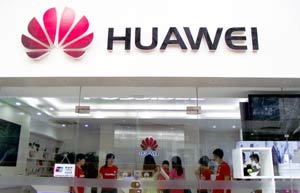Despite recent negative economic indicators across Europe, and the eurozone in particular, there is a ray of hope as China's high-tech companies expand across the continent.
Computer giant Lenovo and telecom equipment provider ZTE are among this clutch of Europe-focused Chinese high-tech giants apparently determined to establish a firm presence on the world stage and in Europe in particular.
Lenovo, for a while now the world's No 1 PC producer by shipments, has made significant progress with its smartphone business this year. Eastern Europe is a key target in its global expansion and related diversification plans. In the longer term, Lenovo's management has also made it clear that it regards Eastern Europe as a springboard into Western European markets.
 |
 |
However, it is probably China's multinational networking and telecommunications equipment and services giant Huawei Technologies Ltd that blazes the brightest trail internationally, with what also appears to be European expansion at the heart of its strategy.
This summer, for example, Huawei announced further European expansion with plans to double its research and development team here within the next three years. This will take the total research and development staff number across Europe to just under 2,000 over the next three years. Recent announcements also include plans by Huawei to increase total staff based in Europe to just under 6,000 over the next five years.
Clearly, Huawei and others mean business when it comes to Europe. This is by no means small beer.
Huawei's recent announcements convey even more decisiveness, determination and intent when it comes to European markets, given that it is already the world's largest telecommunications manufacturer. This was achieved in 2012 when it overtook its European rival Ericsson. But there is no room for complacency in Huawei's ranks.
Obviously at a time of economic gloom and much political uncertainty, Huawei and China's other high-tech firms provide an extremely welcome boost to the European economy. Europe now represents Huawei's largest investment destination, with two research and development centers in 14 European locations.
However, the increasing European presence should not be interpreted as a threat. It simultaneously provides an opportunity for European industry and businesses, and not just those whose business falls within the high-tech radius.
In the eyes of many, Chinese business culture continues to be characterized by a lack of innovation and creativity, more than anything else. This weakness in Chinese companies is also widely regarded as a key reason for the current slowdown in the country's economy.
Chinese management continues to be regarded in the West as obsessed only with short-term profit, low prices and, crucially, low or even no investment.
Clearly, the corporate cultures and management styles at Huawei and its fellow high-tech Chinese giants should now dispel this myth.
Furthermore, recent research findings of mine among China's increasingly internationally oriented small and medium-sized enterprises point to a significant shift toward a far more modern business culture, embracing long-term investment and innovation.
